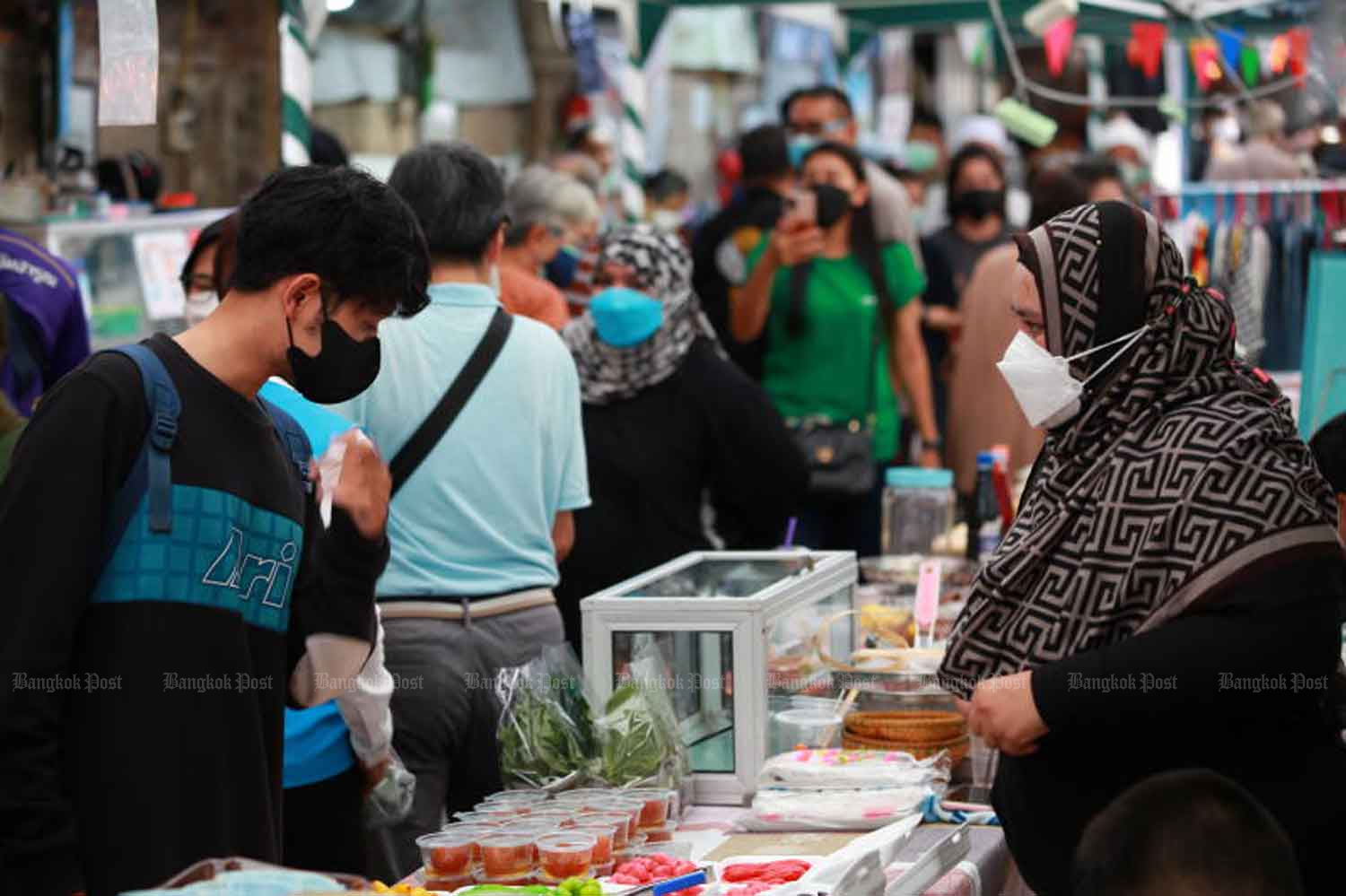
The government should promote Halal-certified products to help Thai food entrepreneurs expand their businesses into a broader market, according to the Central Islamic Council of Thailand (CICOT).
Two CICOT members responsible for promoting Halal-certified products recently told the Bangkok Post that there are opportunities to send Halal-certified products to a broader market, not just to Muslim countries, but around the world.
They said Thailand could become a world hub for Halal produce if the government supports the idea.
Halal certification
Samarn Adam, CICOT's Halal Section Deputy Secretary, said Thailand's Halal certificate had been granted following the implementation of hygiene regulations that conform to Islamic Halal food and production standards.
Companies or producers involved with Halal products must be scrutinised thoroughly, from production line to delivery, he said.

Samarn: Lamentslack of support
''Companies are first examined by each provincial Islamic committee, which visit their production sites to check whether their ingredients and machines are clean, to prevent contamination from haram things such as pork, gelatin or alcohol.
''We even send samples from production sites to our laboratory to ensure they are free from haram contamination.
"Then, the provincial Islamic council submits the initial evaluation to the CICOT. This process takes at least one month to finish,'' Mr Samarn said.
As of Dec 23, last year, according to the CICOT's Halal section website, there were 5,826 business operators, 3,811 factories, 14,246 brands and 161,526 products which are Halal-certified.
Chicken, snacks, vegetable oil, energy drinks, sausages and processed meat are all well-known Halal exports from Thailand.
These products have been exported to the United Kingdom, the Netherlands, Denmark, Malaysia, Indonesia, Singapore, Laos, Pakistan, Hong Kong, South Korea, South Africa, United Arab Emirates, Bahrain, Saudi Arabia and Oman.
"During the pandemic, although exports slowed, Thai Halal products still had momentum, and everything is now getting back in shape. I believe we can export more in the future," he said.
Top Halal-export countries
Thailand is one of the top five exporters of Halal products globally.
However, Mr Samarn said he remains concerned that domestic Halal promotion is not strong enough, due to a lack of government support. Mr Samarn said the council meets often to update regulations to ensure the hygiene status of Halal products across the country; the council also visits Halal production sites themselves.

Adizine: Demandon the rise
"We have thousands of Halal certifiers, but when we have to travel far, we sometimes need to pay costs ourselves as the CICOT has to spare some of its budget for other services related to our religion. We do not have central revenue to distribute, and there are more than 40 provinces with Islamic councils."
So, the government should provide the CICOT with financial assistance to help to promote Halal-certified products. It should also pass on the importance of Halal certification procedures to Halal business operators, he said.
Adizine Nirae, CICOT's Halal Export Section officer, said Thailand Halal exports were valued at more than $6 billion (207.5 billion baht) during the past 2-3 years. For the year just gone, it was still valued at $1 billion, despite the Covid-19 pandemic.
He said the trend would increase in coming years because Thailand Halal products are well-received in the global market, including non-Muslim countries where many Muslims live, such as India, China, Russia and the US.
As for the global Halal market in general, he said it would expand in the future due to three factors: the rising number of Muslims; low food security among Muslim countries especially the Middle East and Northern Africa; and changes in consumer trends among non-Muslims swayed by the cleanliness, safety and traceability of Halal food.
''The export trend is positive, so Thailand should push itself to develop better Halal standards to gain more confidence from both Muslim and non-Muslim countries," he said.
Broadening product range
Thailand should explore the possibility of exporting more Hala products, he said.
The market for Halal cosmetic and personal care, for example, has potential to make more revenue from abroad because in 2022, Thailand exports of cosmetic, soap and personal care products were worth $2.9 billion, which accounted for 1.26% of total exports. Major customers were Japan, the Philippines and Cambodia.
Demand for Muslim fashion has also increased, he said. "Iran, Turkey and Saudi Arabia are major spenders on clothes and shoes. As we are digitalising our commerce, this will help us access more of these major spenders," he added.
Halal pharmaceuticals are another area of potential. "Currently, there are not enough Halal pharmaceutical or medicines for the Muslim community, because these medicines must be permitted under Sharia law and production conducted according to Islamic principles," he said.